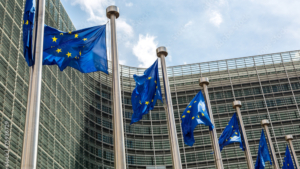
IP: Brexit and patents
On 23 June 2016, the UK voted to leave the EU and, thereby, decided for Brexit. As of today, it is still uncertain what the exact implications of this decision will be, including important questions regarding how the political and legal nature of the future relationship between the UK and the EU will be.
With the exception of Article 50 of the Lisbon Treaty, there is at present little guidance on what effects the exit of the UK from the European Union will have on the overall legal landscape. This uncertainty is exacerbated by the imminent general election in the UK and the uncertain outcome of the Brexit negotiations.
Very recently, the European Commission and the European Medicines Agency (EMA) published a Questions-and-Answers paper providing some guidance on the legal consequences of Brexit on marketing authorisation holders of centrally authorised medicinal products. According to the paper, there are a series of drastic consequences of Brexit on regulatory approval issues, including the requirement for UK-based central marketing authorisation holders to transfer their authorisation to a holder established in the European Economic Area (EEA).
Hence, in the regulatory field, this already foreshadows some of the possibly painful consequences of the UK’s withdrawal from the EU. Brexit will, however, also have an effect on the patent system. The following will attempt to address some of the issues that may be of relevance in this context:
Existing EP (bundle) patents
The existing/old European system for patent rights is based on a centralised application process handled at the European Patent Office (EPO), in which a single patent application matures to grant through the EPO and, thereafter, is split up into its national parts (EP bundle patent).
The underlying European Patent Convention (EPC) is an international treaty that is not based on EU law. In fact, a considerable number of EPC member states, even today, are not EU members. It is likely that the UK will continue to participate in this system, irrespective of the future nature of the relationship between the UK and the European Union. One of the areas that may be affected in the near future, however, is the new Unitary Patent (UP) system and the Unified Patent Court (UPC). In a nutshell, the UP-system envisages the granting of a single, unitary patent through the EPO for all participating EU member states, and the enforcement of all European patent rights in a new, unified European court system. The system requires ratification in 13 member states in order to come into effect, amongst which there must be France, Germany, and the United Kingdom. Germany and the UK have not ratified yet. Towards the end of last year, the new UK Government surprisingly announced that they would move ahead with the ratification process as planned. The website of the Unified Patent Court envisions a start of the system in December 2017, but with the recent announcement of a general election in the UK, a considerable degree of uncertainty has returned. Many observers still expect, however, that the system will come into operation in the spring of 2018, although this timetable has also most recently been put into doubt, since news has emerged that the German Constitutional Court has preliminarily stopped the German ratification process of the UPC system
Without intending for this article to replace the necessary, detailed legal advice of a qualified patent attorney, the following will, therefore, look at some of the details of the UP system:
The Unitary Patent (UP) and the Unified Patent Court (UPC)
Unitary Patent protection can be claimed within one month of the granting of a European patent. Such a unitary patent will cover the territory of all signatory states, and it will be possible to have both the unitary patent and to validate the European patent for states outside of the unitary patent system. However, the new Unitary Patent system not only affects newly granted EP-patents, but also subjects all validations of existing European patents in those countries that have ratified to the jurisdiction of the Unified Patent Court. Patent owners can choose for each of their patents to use the new system, or they can request that their respective European patent(s) are exempt through opting out. Opting out can be effected by a simple request via the UPC Registry, during a limited time period before the agreement comes into force, the so-called sunrise period, and, thereafter, under certain conditions, also during a transitional period of seven years. Currently, the sunrise period has not yet begun, but it may be expected likely to start towards the end of 2017.
The implication of the choice between opting out or staying in the new system is that any European patent that is under the jurisdiction of the Unified Patent Court, namely any unitary patent and any European bundle patent that has not been opted-out, must be litigated at the UPC. The patent can be enforced in the UP-signatory countries through single proceedings before the UPC, but, at the same time, there also comes the risk of a central attack, namely a central revocation action against the patent. By opting out of the system, the respective European patent will not be under the UPC jurisdiction, and any litigation concerning the patent will be dealt with on a national level.
Opting out
There are different strategies with respect to the question of whether to opt-out or stay in. Not opting out gives patent owners the possibility of immediately using the new system, namely asserting their patent(s) at the UPC and obtaining European wide injunctions. In contrast thereto, opting out provides patent owners with the certainty that they can continue to use the already existent European national litigation systems. There is a plurality of considerations that one might wish to employ in order to decide on an opt-out/stay-in strategy, for example: Patents that are potentially useful for a Europe-wide litigation should stay in, whereas if the focus is on the safeguarding and hedging of patents from a central attack, such patents should be protected by opting them out. If a patent is to be enforced in a country where it may be difficult to assert patents, staying in the UP system may be advantageous.
In the same manner, patent owners may also wish to think about filing direct national patent applications in core European countries, thus avoiding the question of opting out or staying in altogether. If the patent is the subject of a license contract, licensees should be consulted about opting out or staying in, and licensing contracts should be reviewed and, possibly, updated to reflect the new options.
Ultimately, in the words of a famous Nobel-laureate singer-songwriter, the times, they are a-changin,’ as well for patent owners.


 adobe stock photos - Sergii Figurnyi
adobe stock photos - Sergii Figurnyi  Laverock Therapeutics
Laverock Therapeutics